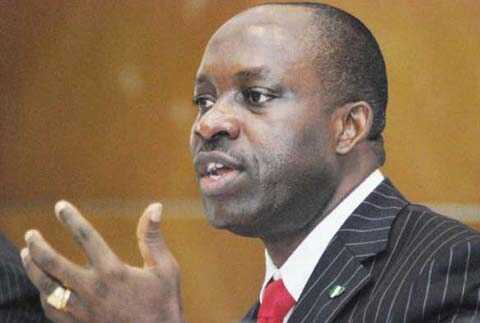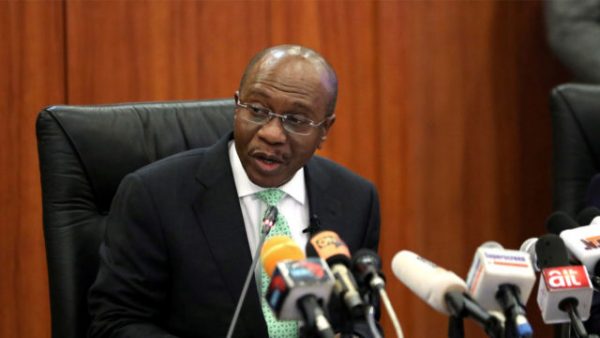Combat Terrorist Financing: CBN Urge Banks, Security Agents, Others
 The Governor of the Central Bank of Nigeria (CBN), Godwin Emefiele, yesterday, called on banking institutions, security agencies and other relevant stakeholders in the financial system to redouble their efforts towards combating Money Laundering and Terrorist Financing (ML/TF).
The Governor of the Central Bank of Nigeria (CBN), Godwin Emefiele, yesterday, called on banking institutions, security agencies and other relevant stakeholders in the financial system to redouble their efforts towards combating Money Laundering and Terrorist Financing (ML/TF).
Emefiele stated this at the Regional Workshop on Money Laundering and Terrorist Financing Risk Assessment For Financial Institutions, organized by the Inter-governmental Action Group Against Money Laundering in West Africa (GIABA), in Abuja.
“The effort at combating money laundering and terrorist financing is no doubt, a collective responsibility of the regulators, regulated entities, law enforcement agencies and other relevant stakeholders in the financial system,” he said. The governor noted that “money laundering and terrorist financing are twin menace, which all territories should continuously focus on in order to avert their debilitating effects on an economy.”
Citing Boko Haram , an Islamic terrorist group in Nigeria and some neighboring countries, CBN Boss explained that they “started as a small radical sect and festered due to ease of financing.
“A docile environment invariably disposes its financial system to money laundering/financing of terrorism activities. Products and services offered by financial institutions provide a veritable avenue for criminals to launder their funds and for terrorist financiers to move funds across various jurisdictions.”
Emefiele, represented by the Deputy Governor in charge of Financial Services and Regulations, Dr Joseph Nnana, said it is behold on the financial institutions to have thorough knowledge of their customers and their businesses.
Policies and procedures
Consequently, financial institutions are required to adopt policies and procedures that will mitigate the risks of money laundering and terrorist financing. The absence of these policies and procedures exposes financial institutions to reputational damages and regulatory sanctions. Financial institutions must therefore, identify, assess and understand ML/TF risks inherent in the nature of their customers, products and services; delivery channels and geographical locations and implement internal policies and procedures to mitigate the identified risks,” he said.
He disclosed that the Apex bank had developed a robust ML/TF Risk Assessment methodology in 2014, “to aid the identification of high risk financial institutions for immediate intervention and continuous monitoring.
In his opening remarks, the Director General of GIABA, Mr. Adama Coulibly, explained that the workshop was designed to equip financial sector operators across West African region “with the requisite technical capacity to undertake ML/TF risk assessment in line with the revised Financial Action Task Force (FATF) standards / methodologies.”
Coulibly expressed confidence that “the exchange of thoughts and ideas in the course of programme will further deepen the implementation of preventive measures.”







